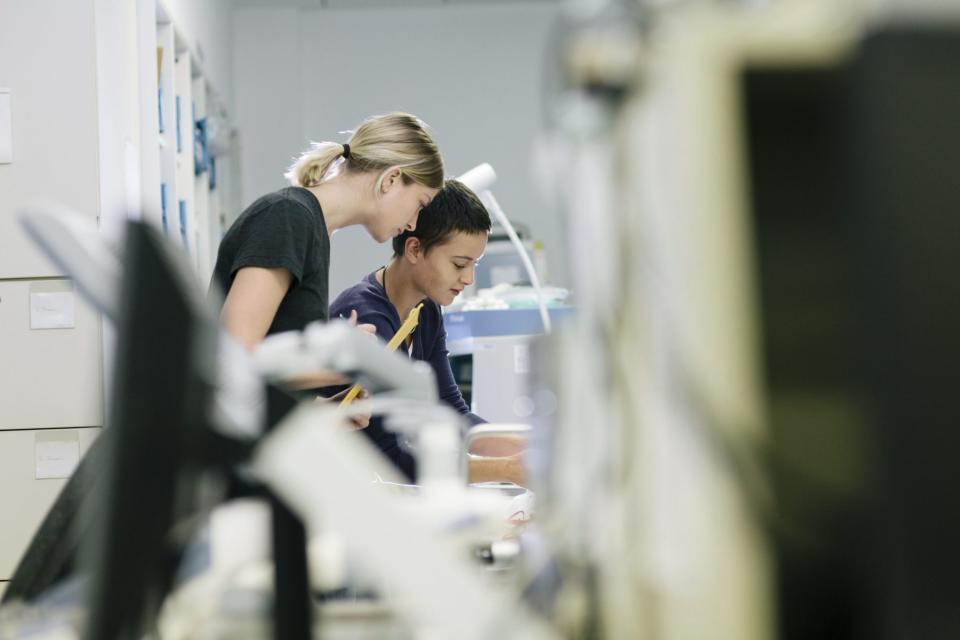The tidal wave of AI-augmented work is coming sooner than you think, consultancy CEO says: ‘Not even in the next five years, in the next year or two’

This year’s crop of new college graduates may be nervous about finding a job that will sustain them financially, or one that will have a positive impact on the environment or a bent toward social justice. But the real concern might well be that they’ll land in a job that asks more of them in the way of AI skills than they’re able to deliver.
So says Nigel Vaz, the CEO of Publicis Sapient, a consultancy focused on helping major corporations like Walmart and McDonald’s digitally transform.
“There will be no job that does not incorporate some form of AI in a very meaningful way, not even in the next five years, in the next year or two,” Vaz told Fortune in a recent interview. “I mean that.”
Vaz, who has been with Sapient for nearly three decades, then rattled off a list of typically hands-on careers—janitor, security guard, designer. “In every one of those areas, AI will be incorporated, even if you don’t know it,” he said.
Unfortunately, in some cases, the AI boom is making it harder, not easier, to hire tech talent, according to Vaz. AI talent is so scarce, Vaz believes, because even though generative AI has been on the scene for several years, it’s only been in recent months that the concept of an “AI job” has solidified. The bad news for applicants is that few of them actually have the requisite skills, in his opinion.
According to a recent Goldman Sachs report, breakthroughs in generative AI could infuse nearly $7 trillion into the global GDP, as well as spur productivity growth by 1.5 percentage points by 2033.
“Despite significant uncertainty around the potential for generative AI,” Goldman Sachs economists Joseph Briggs and Devesh Kodnani wrote in the April 2023 report, its ability to generate content that is indistinguishable from human-created output and to break down communication barriers between humans and machines reflects a major advancement with potentially large macroeconomic effects.”
On the more granular level, for instance, Publicis Sapient works with a large security firm, and Sapient’s current task is to mull over how AI models might stand to predict crime waves and provide preemptive alerts. “I think the role of tech is to make our jobs easier,” Vaz said. “People were not designed to work jobs in factories, in assembly lines, forever. If this tech makes jobs easier and better, they can build on that.”
Then again, Vaz counts himself a tech optimist; plenty of experts take a more ominous view. “My belief is it will help give us superpowers,” he said. “You’ll unlearn stuff you once did one way, and relearn what you need to do using these tools. And you’ll unlearn and relearn constantly, because these tools are going to evolve.”
“Evolve” may be an understatement. Andy Bird, then-CEO of Pearson, the largest education company in the U.S., told Fortune last year that AI is genuinely moving faster than real life, which has led the number of AI-related courses Pearson offers to balloon.
But for those feeling moderately behind the curve, Vaz cautioned against panic. “Don’t obsess with keeping pace,” he said. “I tell my teenage son, ‘What you know is irrelevant. Don’t, for one second, focus on knowing stuff.’ The only skill you need to cultivate is the ability to learn, unlearn, and relearn. What you learned yesterday, you might need to unlearn and relearn tomorrow.”
Continually build that unlearn-relearn muscle, he said. “It’s the only way you’re going to be able to self-sustain in the world”—largely because AI is an augmentation that’s “probably the biggest change humankind has seen since the wheel, or electricity,” Vaz said. “I’m trying not to overstate it, but I think this is just as significant.”
This story was originally featured on Fortune.com

 Yahoo Finance
Yahoo Finance 